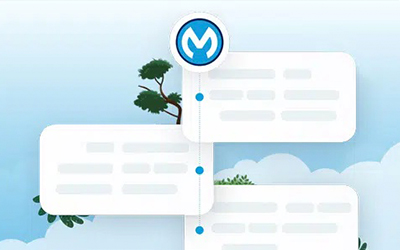Behind Every Great Digital Government Service Is a Smart Delivery Framework
Digital transformation in government is no longer just about putting services online. It’s about designing responsive, inclusive, and built systems for real-time delivery, especially when those systems span multiple departments and technologies. For the NSW Department of Customer Service (DCS), delivering services like the Digital Driver Licence or the Savings Finder means navigating legacy infrastructure, data silos, and citizens’ growing expectations.
The complexity behind these initiatives is significant. Fast, reliable service delivery depends on secure integration between core platforms, not just modern interfaces. Without the exemplary architecture, delays, errors and duplicated effort are inevitable.
This blog explores what makes that architecture work. Specifically, it introduces how MakeSense supports NSW Government agencies with integrated services that combine business analysis, application development, testing, and modern API-first delivery approaches. If you’re part of a public sector team working to modernise how services are delivered across the state, this is where meaningful transformation begins.
Government Leaders on Using Emerging Tech to Attract Talent:

Source: Salesforce
The Public Sector Challenge: Complex Systems, Diverse Agencies, Tight Timeframes
NSW Government departments, particularly DCS, operate in a uniquely complex ecosystem. On any given day, they balance:
- Legacy systems (often on-premises) with modern cloud platforms
- Multichannel citizen engagement (web, mobile, in-person)
- Time-sensitive expectations from millions of residents
These departments also face shifting regulatory landscapes, heightened cybersecurity threats, and a growing mandate to improve accessibility and inclusiveness in service design. For example, the DCS Multicultural Plan 2023–25 and sensory disability initiatives require nuanced, data-rich solutions. Integration platforms that support fast development cycles, comply with standards, and connect diverse systems are essential.
What’s needed is more than middleware. It’s a delivery model built to serve dynamic citizen needs: securely, quickly and at scale.
Enabling Faster Procurement Through MICTA
To accelerate digital service delivery, NSW Government agencies now have access to MakeSense through the MICTA/ICTA (Mobility and ICT Services Prequalification Scheme). This purchasing framework simplifies procurement by allowing departments like DCS to engage pre-approved providers without prolonged onboarding or tender processes.
Inclusion in the MICTA panel confirms MakeSense’s readiness to deliver secure, scalable services tailored to the public sector. It ensures agencies can access expertise in integration, application development, business analysis, solution architecture, and testing with confidence in compliance, security, and delivery quality.

Built for Government-Grade Implementation at Scale
MakeSense’s government delivery model is engineered to support high-security, high-volume public services without unnecessary complexity.
Here’s what sets it apart:
- API-first integration: At the core is a design built for reuse, speed and scalability. This makes it easy to surface data and services across agencies via secure, standardised APIs.
- Prebuilt connectors and accelerators: Ready-to-go integrations help NSW departments reduce development time and deploy services faster.
- Event-driven processing: Ideal for services like real-time status updates, alerts and identity verification across departments.
- Security and auditability: With baked-in access controls, logging and compliance support, every engagement meets public sector standards from day one.
By abstracting complexity and embedding governance, MakeSense helps agencies like DCS deliver innovation with confidence.
Real-World Alignment: Supporting DCS-Like Use Cases
MakeSense’s delivery capability applies directly to real-world DCS initiatives. Here’s how:
- Digital Driver Licence: Enables seamless, secure data flow between Service NSW, the RMS, law enforcement and third-party verifiers, while ensuring data privacy and uptime.
- Unclaimed Money Search Tool: Supports real-time queries and cross-agency data matching so residents can instantly check entitlements.
- Multicultural and Accessibility Initiatives: Modular front-end integration enables multi-language interfaces and support for sensory needs, backed by secure orchestration on the back end.
- Savings Finder: Fetches eligibility data across departments, validates it and presents savings options in real time—all via secure APIs.
- Digital Trade Licences: Streamlines workflows across councils and agencies from application to approval, ensuring faster delivery and fewer manual errors.
These are just a few examples of how MakeSense simplifies service complexity, enhances responsiveness and supports inclusive digital experiences.

Rethinking Reuse: Building Once, Delivering Often
Traditional government IT integration often involved point-to-point, one-off builds, which were costly, brittle, and hard to maintain. MakeSense’s approach is different.
With a reusable microservices architecture, agencies can create once and reuse often. For instance, identity validation logic used in one program (like ID Support NSW) can be safely applied to others (like the Digital Birth Certificate service).
This reusable model helps:
- Reduce technical debt
- Accelerate new project rollouts
- Minimise long-term costs
- Strengthen consistency and security
It also lessens reliance on multiple vendors by consolidating core capabilities within one smart integration and development model.
Accelerating Delivery: How MakeSense Works with Government Teams
MakeSense doesn’t just provide technology. It works as an extension of the delivery team. This approach empowers agencies to build capability while delivering impact.
Here’s how it works:
- Discovery and proof-of-concept sprints help uncover integration and application opportunities quickly
- Co-design with in-house teams supports knowledge transfer and aligns solutions with agency goals
- Agile implementation layers wrap around legacy systems, avoiding downtime or risky migrations
- Framework alignment ensures compliance with procurement, security and data handling under arrangements like MICTA
With procurement pathways now open via the NSW Government ICT panel, MakeSense is well-positioned to support DCS and other departments in scaling innovation securely and efficiently.

Conclusion: Integration Is the Foundation for Digital Public Services
Delivering on the NSW Government’s 2030 vision of customer-centric services requires more than well-designed interfaces. It depends on strong, secure integration across systems, agencies and service channels.
Legacy technology, complex requirements and rising citizen expectations demand a modular, API-first approach that supports reuse, speed and compliance. Integration is no longer just a technical function. It is the foundation for reliable, inclusive and scalable public services across New South Wales.
Next Steps: Explore Government Integration with Confidence
Smart, purpose-built integration is essential to delivering fast, reliable and accessible public services. The approach outlined above is more than a platform; it’s a proven way to connect legacy systems, support innovation and meet compliance and delivery standards across government.
If you’re modernising existing services or planning new digital initiatives, begin with a secure foundation and a roadmap that scales with your goals. Visit our Government Services page to see how we support integration, application development and automation tailored to the needs of NSW Government agencies.








